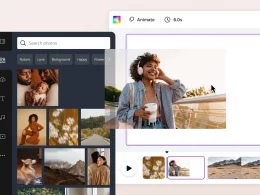In the digital age, social media has become an integral part of our daily lives. Platforms like Facebook, Twitter, Instagram, and LinkedIn are no longer just tools for social interaction; they have evolved into powerful channels for disseminating information and influencing public opinion. One of the most significant areas where social media has made an impact is in promoting sustainability. This article explores how social media is being leveraged to foster sustainable practices, raise awareness, and drive collective action towards a more sustainable future.
The Power of Social Media in Shaping Public Opinion
Social media platforms have a unique ability to shape public opinion and mobilize communities. With billions of active users worldwide, these platforms serve as a global stage where ideas can be shared instantly and widely. This reach is particularly beneficial for promoting sustainability, a concept that requires collective effort and widespread behavioral changes.
For instance, hashtags like #Sustainability, #ZeroWaste, and #ClimateAction have gained significant traction, allowing users to find and share content related to sustainable living. Influencers and organizations use these hashtags to reach a broader audience, thereby raising awareness about pressing environmental issues.
Raising Awareness and Education
One of the primary roles of social media in promoting sustainability is raising awareness. Educational posts, infographics, and videos about climate change, plastic pollution, and renewable energy are commonly shared across platforms. These posts often go viral, capturing the attention of millions and sparking conversations about sustainability.
Educational campaigns on social media have proven to be effective. For example, initiatives like Earth Hour, which encourages people to turn off non-essential lights for one hour to raise awareness about energy consumption, have gained global participation largely due to social media promotion. Similarly, the #FridaysForFuture movement, initiated by climate activist Greta Thunberg, has mobilized millions of young people around the world to demand action on climate change.
Influencers and Advocates
The rise of social media influencers has also played a significant role in promoting sustainability. Influencers with large followings have the power to sway public opinion and encourage sustainable practices. Many influencers are now focusing on sustainability, using their platforms to advocate for eco-friendly products, sustainable fashion, and zero-waste lifestyles.
These influencers often collaborate with brands that are committed to sustainability, thereby promoting products that are environmentally friendly. Such collaborations not only help in spreading the message of sustainability but also encourage businesses to adopt more sustainable practices to appeal to a socially conscious audience.

Corporate Responsibility and Transparency
Social media has also compelled businesses to be more transparent about their sustainability efforts. Companies are increasingly using social media to communicate their sustainability initiatives, from reducing carbon footprints to using sustainable materials. This transparency is crucial for building trust with consumers who are becoming more environmentally conscious.
Moreover, social media provides a platform for consumers to hold companies accountable. Negative publicity about unsustainable practices can quickly go viral, forcing companies to address these issues promptly. This accountability has led to a rise in corporate social responsibility, with many companies now prioritizing sustainability in their business models.
Community Building and Collective Action
Social media platforms are excellent tools for building communities around shared interests and goals. Sustainability-focused groups and communities have flourished on platforms like Facebook and Reddit, where members share tips, resources, and support for living more sustainably.
These online communities often translate into real-world action. For example, local clean-up events, tree planting drives, and sustainability workshops are frequently organized through social media. These events not only contribute to environmental conservation but also foster a sense of community and collective responsibility.
Crowdsourcing and Funding Sustainable Projects
Crowdsourcing and crowdfunding have become popular methods for supporting sustainable projects, and social media plays a crucial role in these efforts. Platforms like Kickstarter and GoFundMe are often promoted through social media to reach a larger audience. This approach has funded numerous sustainability projects, from renewable energy innovations to conservation initiatives.
By leveraging the power of social media, project creators can attract funding and support from people who are passionate about sustainability. This democratization of funding allows for a diverse range of sustainable projects to come to fruition, contributing to global sustainability efforts.
Challenges and Criticisms
While social media has been instrumental in promoting sustainability, it is not without its challenges and criticisms. One major concern is the issue of “greenwashing,” where companies or individuals promote themselves as environmentally friendly without making significant efforts towards sustainability. Social media can sometimes amplify these misleading claims, making it difficult for consumers to discern genuine sustainability efforts from superficial ones.
Additionally, the rapid spread of misinformation on social media can undermine sustainability efforts. False claims and pseudoscience can quickly gain traction, confusing the public and detracting from legitimate sustainability initiatives. Therefore, it is crucial for users to critically evaluate the information they encounter on social media and rely on credible sources.
The Future of Social Media and Sustainability
As social media continues to evolve, its role in promoting sustainability is likely to grow. Emerging technologies like artificial intelligence and augmented reality could further enhance the ability of social media platforms to educate and engage users on sustainability issues.
For instance, AI algorithms can be used to identify and promote high-quality content related to sustainability, while augmented reality can offer immersive educational experiences about environmental conservation. These advancements could make social media an even more powerful tool for driving sustainable behavior.
Moreover, as younger generations, who are generally more environmentally conscious, continue to dominate social media usage, the focus on sustainability is expected to intensify. This demographic shift will likely lead to increased pressure on businesses and governments to prioritize sustainability.
Conclusion
In conclusion, social media has emerged as a vital tool in promoting sustainability. Its ability to raise awareness, educate the public, influence behavior, and hold entities accountable makes it a powerful ally in the fight for a sustainable future. However, it is essential to navigate the challenges of misinformation and greenwashing to fully harness the potential of social media in promoting genuine sustainability efforts. As we move forward, the continued innovation and responsible use of social media will be crucial in driving the collective action needed to address global environmental challenges.










